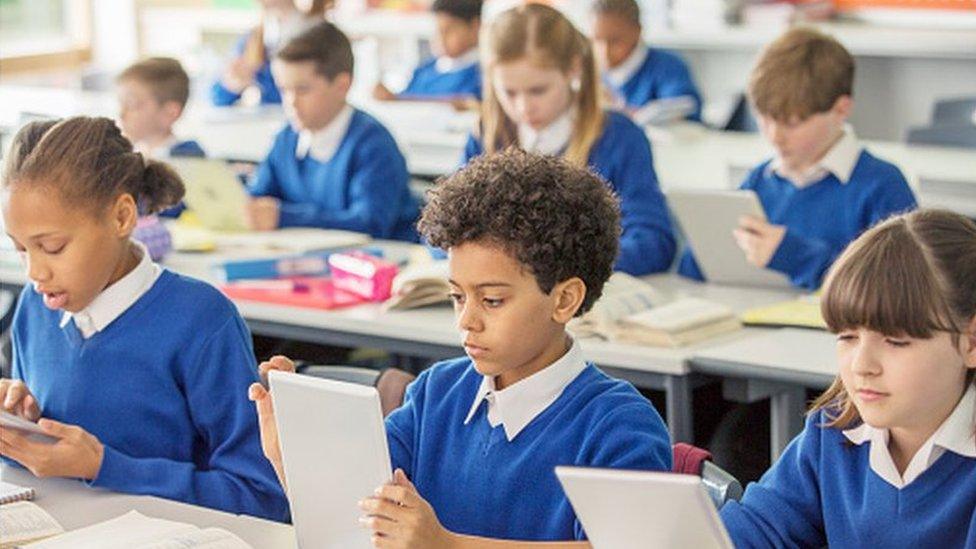Poor pupils 'less likely to be at outstanding primary'
- Published

Children from poorer homes in England are nearly half as likely to attend an outstanding primary school as richer children, research finds.
Only 15% of children from the poorest 30% of families currently go to outstanding primary schools, a study by education charity Teach First suggests.
This compares to 27% of children from the richest 30% of families who attend a school rated highly by inspectors.
The government says it is making more good school places available.
The research is published as parents in England prepare to hear on Tuesday which primary school their child has been allocated.
The study, by education charity Teach First, analysed official data on income deprivation, known as IDACI, and information from Ofsted inspections.
The results suggest the lowest-income families were also twice as likely to have a child at a primary school rated by Ofsted inspectors as "requires improvement" or "inadequate".
In total, 11% of children in these families currently attend a struggling primary school, compared to just 6% of the richest ones.
Teach First noted that this situation continued into secondary school, with the percentage of the lowest-income children going on to a secondary school rated "as requires improvement" or "inadequate" by Ofsted standing at 24%.
This compares to 10% of children from the wealthiest families.
Brett Wigdortz, chief executive and founder of Teach First, said: "These figures show that social mobility remains a serious issue in our country.
"We know that all families care about giving their children the best possible start in life, but as outstanding schools are unfairly concentrated in richer communities, poorer families are finding themselves priced out.
"As a society we must challenge the idea that where a child is from, or how rich their parents are, determines whether they get access to an outstanding education.
"We must work towards a future where opportunities are available for all, in order to create a country that works for everyone".
A spokeswoman for the Department for Education said: "There are 1.8 million more children in good or outstanding schools than 2010.
"We have created almost 735,000 extra school places since 2010, with 92% of new primary school places built in 2015-16 created in good or outstanding schools.
"This has meant that last year 96.3% of parents in England received an offer at one of their top three preferred primary schools."
But she acknowledged there was more to be done.
"We have already set out plans to make more good school places available - including scrapping the ban on new grammar school places, and harnessing the resources and expertise of universities, independent and faith schools."